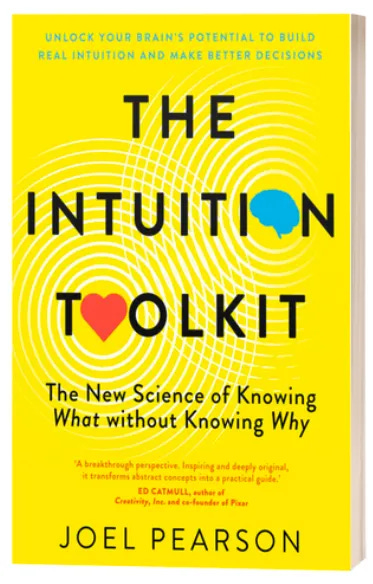Future Minds newsletter breaks down the science of the mind and brain into short and easy-to-digest insights and actionable take-homes. Sign up and join the many others who receive it directly in their inbox.
Hello, dear readers!
Are you curious about your Emotional Intelligence level? It turns out that high emotional intelligence predicts a huge range of positive things in life, from job performance, entrepreneurial success, corporate success, well-being and stress management to academic performance and social relationships.
In this latest issue of our newsletter, we're exploring Emotional Intelligence, delving into its role as a success predictor—often outshining even high IQ—and examining the impact of technology on our emotional skills. Plus, don't miss our engaging quiz to gauge your emotional intelligence and discover tailored tips for enhancing areas where your emotional intelligence may need a boost.
For the price of a coffee each week, you can subscribe to our premium newsletter and help support science, its communication and hear directly about the new discoveries about aphantasia and mental imagery:
At a glance:
Emotional Intelligence surpasses IQ in correlating with success, empowering leaders like Satya Nadella to inspire and manage with empathy.
Technology's rise challenges our Emotional Intelligence, affecting empathy and social skills, highlighting the need for balanced tech use.
Improve Emotional Intelligence by practising active listening, reflecting on emotions, and cultivating empathy, based on expert insights.
Unlocking the Mysteries of Emotional Intelligence: A Guide for the Modern World
Understanding Emotional Intelligence: More Than Just a Buzzword
Emotional intelligence is a general term given to a collection of qualities or characteristics, from someone’s own emotional awareness to the awareness of others and the ability to manage or harness emotions.
Remember the last time you were in a morning rush that turned chaotic—traffic jams, coffee spills, and elusive parking spots push your stress to its limits. Yet, amidst this turmoil, you pause, breathe, and recalibrate, steering away from frustration. Having the self-awareness to notice your levels of stress and elevated physiology, coupled with the ability to then modulate your state, exemplifies the essence of emotional intelligence.
Emotional Intelligence is not solely about curbing stress or avoiding emotional outbursts; it also extends to perceiving and responding to the emotional needs and states of those around us. Whether it's offering support to a friend in need or a leader diffusing potential conflicts in their team, emotional intelligence fosters deeper connections, promotes mental well-being, and paves the way for professional growth, proving its worth as a fundamental component of successful interpersonal interactions.
I invite you to take this test and find out your level of Emotional Intelligence before you keep reading… (please ignore the last questions that are not really relevant to the test).
Emotional Intelligence, Empathy, and Charisma: The Trifecta of Personal Magnetism
Empathy and charisma often orbit the idea of Emotional Intelligence. They're distinct yet interconnected, empathy allows you to sense and understand the emotions of those around you. It's what makes you ask a colleague how they're doing when they seem a bit off or listen intently to a friend sharing their struggles. Charisma, on the other hand, is the sparkle that makes people want to be around you — it's a blend of confidence, warmth, and authenticity, powered by a strong undercurrent of emotional intelligence.
Emotional Intelligence vs. IQ: The Real Game Changer for Success
There's a long-standing debate about what predicts success better: the level of your IQ or EQ (Emotional Intelligence)? And it does depend on how you define success.
Leaders with high Emotional Intelligence are adept at recognising their own emotions and those of those around them. They can manage stress, inspire and motivate others, and navigate conflicts more effectively. A Harvard Business Review article highlighted that emotional intelligence accounts for nearly 90% of what sets high performers apart from peers with similar technical skills and knowledge. Leaders like Satya Nadella of Microsoft have been praised for their emotionally intelligent approach to leadership, which has been instrumental in transforming company culture and driving success. For high-level performance Emotional Intelligence is more important, eg. it correlates more with measures of success than IQ.
“A Harvard Business Review article highlighted that emotional intelligence accounts for nearly 90% of what sets high performers apart from peers with similar technical skills and knowledge.”
Satya Nadella CEO of Microsoft: “EQ trumps IQ”
In the realm of workplace culture, emotional intelligence plays a pivotal role in creating an atmosphere of psychological safety. This environment encourages open communication and innovation, as seen in Google's research on team effectiveness. Managers skilled in emotional intelligence contribute to a culture where team members feel valued and understood, directly impacting overall team performance and satisfaction. As mentioned above, an important part of emotional intelligence is noticing and understanding emotions in others, so if one of your teammates is stressed, sad, or angry you notice straight away.
Decision-making is another area where emotional intelligence proves invaluable. Managers who leverage emotional intelligence can balance empathy with analytical thinking, leading to decisions that are both informed and considerate of the team's emotional landscape. This approach not only enhances decision quality but also strengthens trust and respect within the team. Embracing emotional intelligence in leadership practices is essential for achieving organisational success.
“Managers who leverage emotional intelligence can balance empathy with analytical thinking, leading to decisions that are both informed and considerate of the team's emotional landscape.”
The Digital Dilemma: Is Technology Eroding Our Emotional Intelligence?
In today's digital age, we're more connected than ever before, yet there's a growing concern that technology might be chipping away at our emotional intelligence. Recent studies suggest that our growing reliance on technology might be subtly eroding aspects of our emotional intelligence, particularly empathy and the ability to read social cues. For example, research indicates a noticeable decline in empathetic concern among college students over the years, a trend that coincides with the rise of digital communication. It seems the shift from face-to-face interactions to screen-based communication might offer fewer opportunities to practice empathy, arguably a cornerstone of emotional intelligence.
Moreover, there's intriguing evidence suggesting that unplugging from digital devices can enhance our ability to understand nonverbal emotional cues. A study highlighted improvements in preteens' emotional cue recognition after spending time in an environment free from screens. This implies that direct, unmediated interactions play a vital role in developing the nuanced skill of reading emotions, an essential element of emotional intelligence. It appears the digital age, for all its advantages, might be compromising this critical aspect of human connection.
Additionally, the presence of mobile devices has been shown to diminish the quality and emotional depth of personal interactions. People tend to be less engaged and empathetic when a conversation competes with the lure of a buzzing phone. This distraction not only affects the immediate interaction but could have broader implications for our capacity for empathy and emotional connection. As we navigate this digital landscape, it's worth considering how our technology habits impact our emotional skills and striving for a balance that preserves our innate human connectivity.
How will the growing trend of human-AI relationships affect emotional intelligence? The simple answer is we just don’t yet know, but based on the trends we’ve seen so far, I predict that as we spend more and more time conversing with AI agents, our emotional intelligence will likely go down further.
Emotional Intelligence and Aphantasia
In some recent work by my PhD student Annaliese McGavin we found an interesting relationship between measures of emotional intelligence and mental imagery. Particularly, for those with hyperphantasia, but more on this soon, we are planning a premium post with these data so sign up if it’s of interest.
Neuro Hacks - Enhancing your EI
Improving emotional intelligence is something that can lead to better relationships, enhanced leadership skills, and increased self-awareness. Drawing insights from best-selling authors in the field, here are three practical tips to enhance your emotional intelligence:
Practice Active Listening: In "Emotional Intelligence 2.0" by Travis Bradberry and Jean Greaves, active listening is highlighted as a key skill for building emotional intelligence. This involves fully concentrating, understanding, responding, and then remembering what is being said. By practising active listening, you not only gain a deeper understanding of others' perspectives but also demonstrate empathy and respect, essential components of emotional intelligence.
Reflect on Your Emotions: Daniel Goleman, emphasises the importance of self-awareness as the foundation of emotional intelligence. One way to enhance self-awareness is by reflecting on your emotions. This is something that I talk about in the Intuition Toolkit, as it’s an important part of being aware of your own emotional state, for practising intuition. Try to identify what you feel, why you feel it, and how it impacts your thoughts and actions. This reflective practice can help you gain insights into your emotional patterns and triggers, leading to better emotional regulation. You can even try labelling your emotions with as many adjectives as you can, to bring out awareness of more subtle details.
Cultivate Empathy: To cultivate empathy, make a conscious effort to see things from others' perspectives and to genuinely understand their feelings and needs. This can involve asking open-ended questions, being present in conversations, and observing nonverbal cues. Empathy not only strengthens your relationships, but also enhances your ability to navigate social situations effectively.
By integrating these practices into your daily life, you can embark on a path to improving your emotional intelligence. Remember, developing emotional intelligence is a continuous process that requires patience, dedication, and a willingness to grow - but it can be improved.
Mental Meanderings
Do you think that your level of mental imagery has any relation to your level of Emotional Intelligence? How do you “put yourself in other people’s shoes”? By imagining? If not are you aware of how you do it?
Reflecting on leaders you admire, what emotional intelligence qualities do they exhibit that you find most inspiring or effective?
Considering the "Digital Dilemma," how do you think your use of technology has affected your emotional intelligence, for better or worse?









EI Test: This 77 yr old aphant achieved 11/20 mainly through guessing. It became boring to me as even the word choices were a bit strange to my social thinking. Shame? How often is that expressed in public? (The test felt very American to me. I am Australian.) Being extremely textual rather than visual I suspect I read other’s emotions more by tone and verbal nuance than visually. Or most likely all three.
I do try to actively listen and appropriatley respond in conversations. I certainly reflect on my own emotional responses. Really do try to flip my own reactions to an awareness of the other person’s possible feelings. My well-practiced intuitive/informational field responses to other’s feelings usually have to be consciously activated. Roseann.